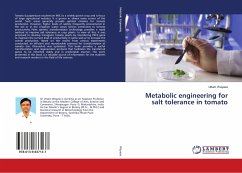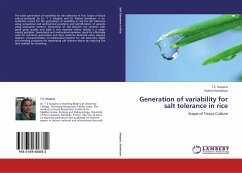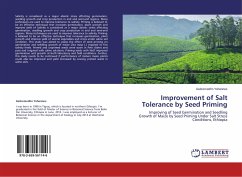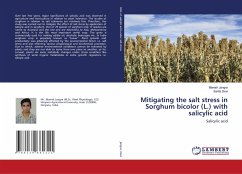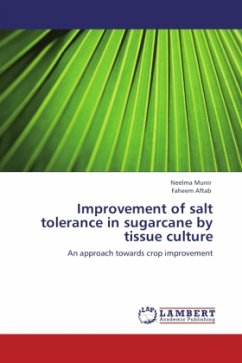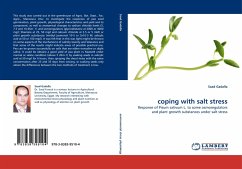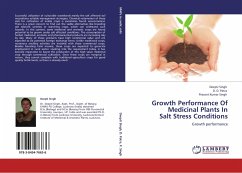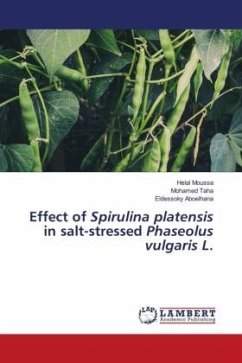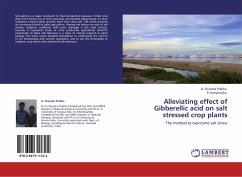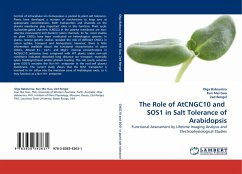
The Role of AtCNGC10 and SOS1 in Salt Tolerance of Arabidopsis
Functional Assessment by Lifetime Imaging Analysis and Electrophysiological Studies
Versandkostenfrei!
Versandfertig in 6-10 Tagen
32,99 €
inkl. MwSt.

PAYBACK Punkte
16 °P sammeln!
Control of intracellular ion homeostasis is pivotal to plant salt tolerance. Plants have developed a number of mechanisms to keep ions at appropriate concentrations. Both transporters and channels on the plasma membrane play important roles in this function. Plant cyclic nucleotide-gated channels (CNGCs) in the plasma membrane are non-selective monovalent and divalent cation channels. So far, most studies on plant CNGCs have been conducted on heterologous systems. In planta, reverse genetic studies revealed the role of different CNGCs in cation uptake, transport and homeostasis. However, there...
Control of intracellular ion homeostasis is pivotal to plant salt tolerance. Plants have developed a number of mechanisms to keep ions at appropriate concentrations. Both transporters and channels on the plasma membrane play important roles in this function. Plant cyclic nucleotide-gated channels (CNGCs) in the plasma membrane are non-selective monovalent and divalent cation channels. So far, most studies on plant CNGCs have been conducted on heterologous systems. In planta, reverse genetic studies revealed the role of different CNGCs in cation uptake, transport and homeostasis. However, there is little information available about the functional characteristics of plant CNGCs. Altered K+, Ca2+ and Mg2+ internal concentrations in AtCNGC10 antisense lines compared with WT plants under non-salt conditions indicated disturbed long distance ion transport, especially xylem loading/retrieval and/or phloem loading. The salt overly sensitive gene (SOS1) encodes the Na+/H+ antiporter in the root-cell plasma membrane. The current study shows that the SOS1 transporter is involved in H+ influx into the meristem zone of Arabidopsis roots, or it may function as a Na+/H+ antiporter.



